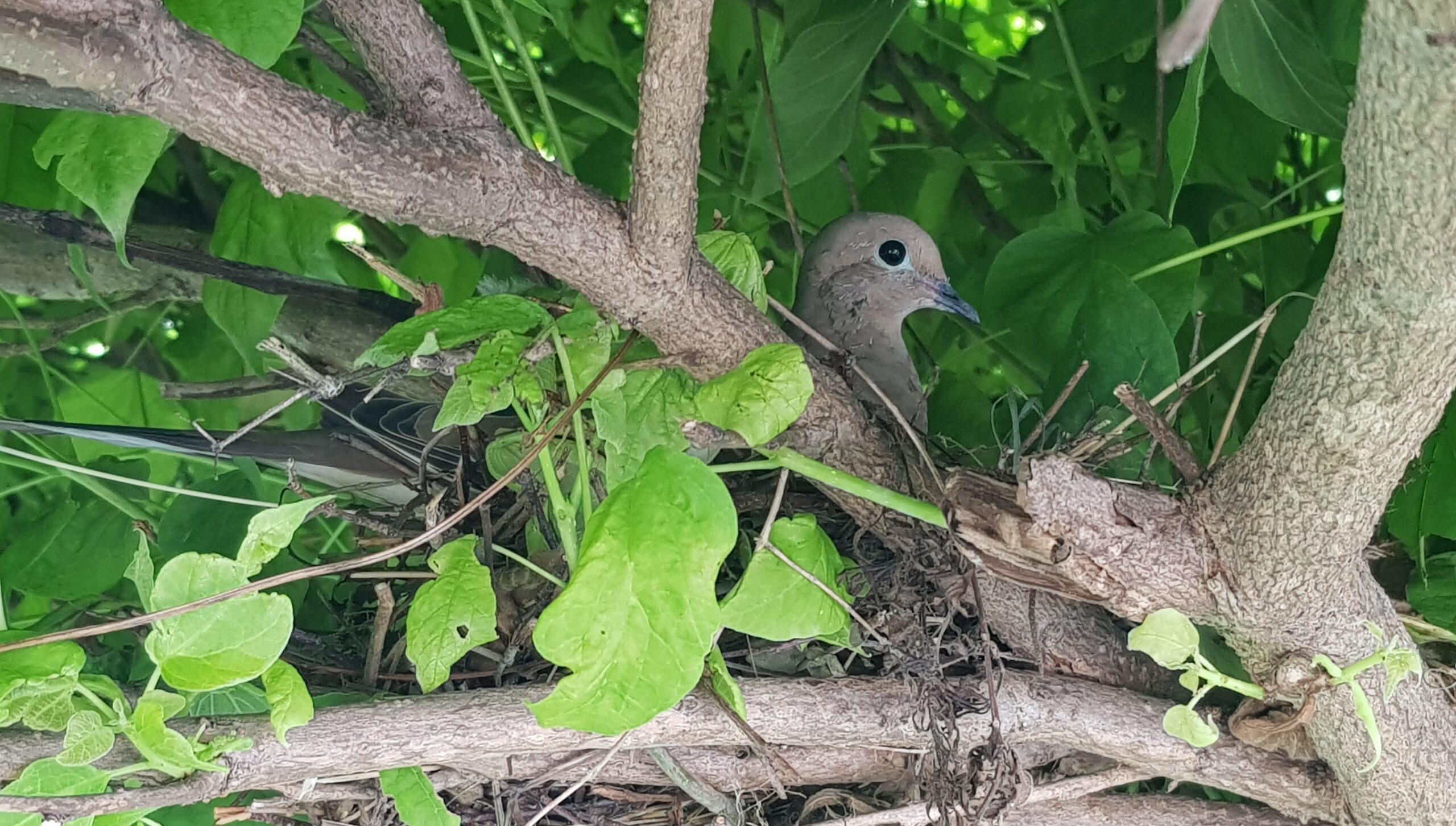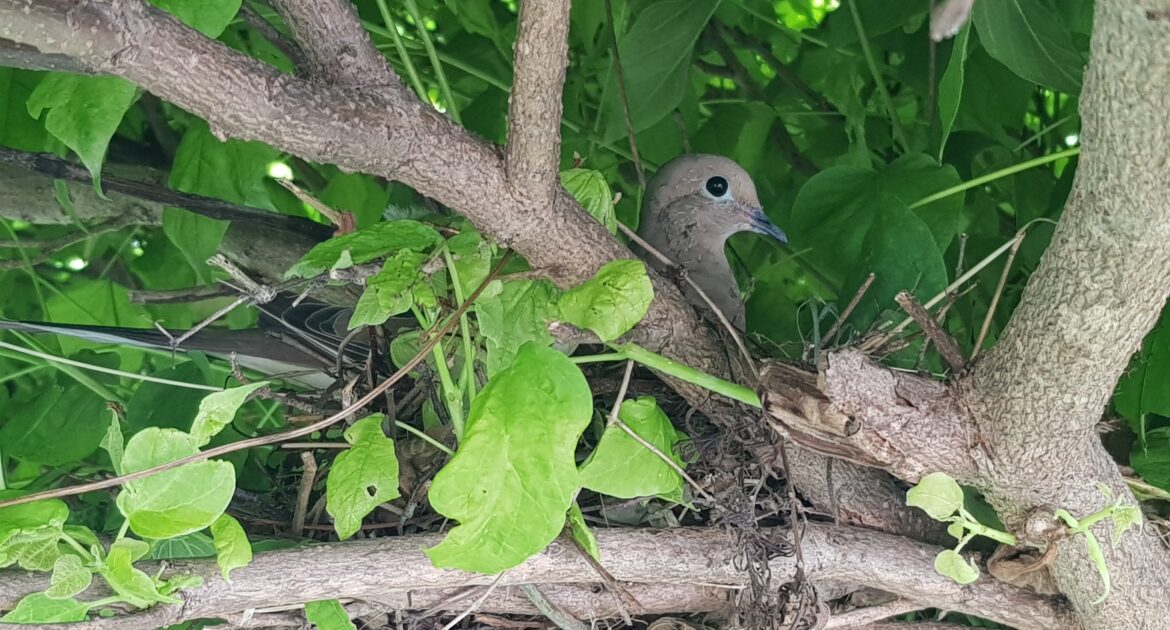Do you enjoy seeing colourful, chirping birds in your yard? Feeding birds can be a delightful way to connect with nature, but choosing the right foods is key to keeping them healthy. At the same time, it’s important to ensure you’re not unintentionally attracting wildlife like bats or birds into your home. Keeping your property free from unwanted animals is especially important during the summer, and that’s where we come in.
Skedaddle Humane Wildlife Control in Kitchener-Waterloo can help protect your home with our humane one-way door solutions, preventing wildlife from making themselves too comfortable indoors.
Now, let’s talk about the foods in your kitchen that can benefit birds. Knowing what they can eat, paired with safe bird feeding tips, creates harmony between enjoying backyard wildlife and keeping it from becoming a problem around your home. Here’s a look at some kitchen food for birds and handy tips for feeding them safely and responsibly.
Safe and Nutritious Kitchen Food for Birds
Certain foods you already have in your kitchen can serve as healthy treats for birds. However, not all human food is safe for them to eat. Below is a list of kitchen foods that many bird species can enjoy.
Fruits
Fresh or dried fruits can be a fantastic treat for birds. They are rich in natural sugars and nutrients birds thrive on.
Safe options:
- Fresh apple slices (remove seeds as they contain toxins)
- Berries like blueberries, strawberries, and raspberries
- Orange slices
- Chopped grapes
- Raisins or dried cranberries (unsweetened and preservative-free)
When offering fruits, remember that too much can attract other wildlife. To keep your yard and home secure, offer small portions and be sure to clean up any leftovers to avoid drawing animals like raccoons or squirrels too close to your property.
Vegetables
Many vegetables are packed with nutrients, making them an ideal supplement to a bird’s natural diet. Carrot shreds are a favourite, providing both crunch and nutrition. Peas are another excellent option, delivering a small yet powerful punch of vitamins. Corn kernels, as long as they are unsalted and unbuttered, make for a hearty and filling snack. Cooked or grated sweet potato is an easily digestible option that many birds seem to enjoy.
Dark leafy greens, such as spinach or kale, are also highly nutritious, particularly for birds that naturally forage for greens in the wild. When offering vegetables, stick to raw or lightly cooked options without seasoning or oils, as these can harm birds. Spoiled vegetables should never be put outside, as they not only pose a health risk to the birds but can also draw in unwanted pests near your home.
Grains and Breads
Grains and breads can also be safe for birds if you choose wisely. Birds often enjoy unsalted, air-popped popcorn, which provides a crunchy treat full of fibre. Cooked grains like brown rice or plain oatmeal can offer a boost of energy while being easy for birds to digest. Whole-grain bread, when provided sparingly, can be a treat many birds enjoy, but the key is to offer only small quantities.
Avoid white bread and other processed baked goods, as they lack the nutrients birds need and could actually harm their system if consumed in large amounts. Grains like these not only add variety to a bird’s diet but are also easy to share from your pantry. Just be mindful of moderation to avoid attracting larger animals or creating dependencies on human food.
Seeds and Nuts
Many bird species already eat seeds and nuts in the wild, so these can be great to supplement their diet. However, raw and unsalted options are essential for their safety.
Bird-friendly nuts and seeds:
- Sunflower seeds (a favourite for many birds)
- Raw peanuts (unsalted, no shells)
- Chopped almonds or walnuts
- Pumpkin seeds
These nutrient-packed treats are particularly helpful for birds trying to build up energy reserves during the colder months or when preparing for migration. To ensure their safety, it’s essential to offer nuts and seeds in their raw, natural state, without any added salt or flavouring that could harm their health.
Cooked Foods
While most of a bird’s diet should come from natural sources, there are a few cooked foods that can safely make their way to your bird visitors.
Examples:
- Cooked eggs (rich in protein)
- Plain pasta or couscous (unsalted and oil-free)
- Plain baked potatoes (mashed or chopped, no butter or seasoning)
These cooked items should only be offered in moderation and should not be seasoned or paired with ingredients like butter, as these can be harmful.
To avoid having these animals roam too close to your home in search of food, place these treats well away from windows, doors, or other potential entry points. This not only protects the animals but also helps maintain the safety and cleanliness of your living space.
Safe Bird Feeding Tips
Feeding should be done thoughtfully to ensure the well-being of birds and to minimize issues around your home. Whether you’re offering kitchen food or using store-bought birdseed, consider these safe feeding tips:
- Feed Away From the House: To reduce the risk of birds straying indoors, set feeders or food stations far from windows, doors, and roofs. This also discourages unwanted animals like raccoons or squirrels.
- Use Proper Feeders: Certain foods like seeds or grains are best served in appropriate feeders to keep the area tidy and prevent spills that attract other wildlife.
- Avoid Processed and Sugary Foods: Keep harmful foods like chips, salted nuts, and candy away from these animals. These are bad for their health and can create dependency.
- Clean Feeding Areas Regularly: Whether it’s a feeder or a ground station, clean the area to prevent spoiled food buildup and curb diseases.
- Proper Disposal of Extras: Never leave large amounts of leftover food outdoors. Birds typically need small portions, and excess food invites unwelcome visitors like squirrels or bats.
By following these tips, you can maintain a healthy balance between enjoying backyard birds and protecting your home.
What Birds Shouldn’t Eat
Not all kitchen foods are safe for birds. Some common items are toxic or can cause health problems for them. Here’s what to avoid:
- Avocado: Contains a toxic substance called persin, which is dangerous to birds.
- Chocolate: Toxic to many animals, and birds are no exception.
- Salted or Sugary Foods: Salt can be harmful, and sugar has no nutritional value for birds.
- Alcohol or Caffeine: Both are toxic and can cause severe health issues or death.
- Onions, Garlic, and Seasoned Foods: These can harm birds’ delicate systems and should never be offered.
Staying educated about what birds can eat and what to avoid protects them while ensuring your feeding efforts don’t create additional risks for your home.
Protecting Your Home While Feeding Birds
Feeding birds responsibly doesn’t mean inviting them into your home! During warmer months, homes in Kitchener-Waterloo are at greater risk of attracting unwanted animals, like bats or birds, especially if there are existing entry points. By putting food away from your house and keeping food portions manageable, you can reduce the chances of birds straying too close.
If unwanted wildlife does manage to make its way indoors, our team at Skedaddle Humane Wildlife Control can help. We use humane methods, like one-way doors, to allow animals to leave without getting back inside. This approach ensures effective removal while protecting animals and people alike.
Bring Birds to Your Backyard, Not Your Home!
Feeding birds responsibly can be a wonderful experience when you know what birds can eat and follow safe bird feeding tips. At the same time, it’s essential to keep wildlife outside where they belong. If you’re dealing with unwanted animals in or around your home, Skedaddle Humane Wildlife Control in Kitchener-Waterloo is here to help.
Our expert team specializes in humane removal techniques that solve the problem for good. Request an estimate today and ensure your home stays secure, so you can focus on safely enjoying backyard wildlife!




